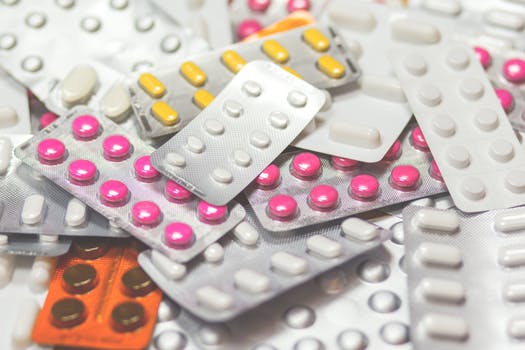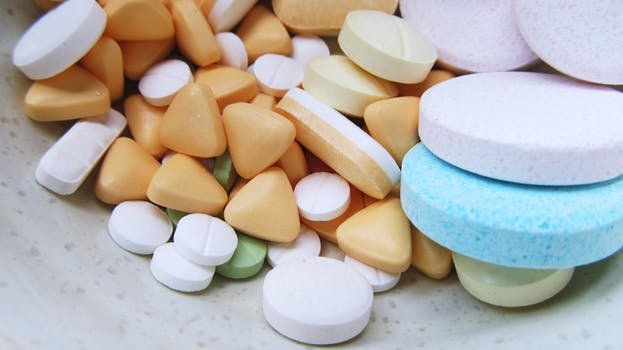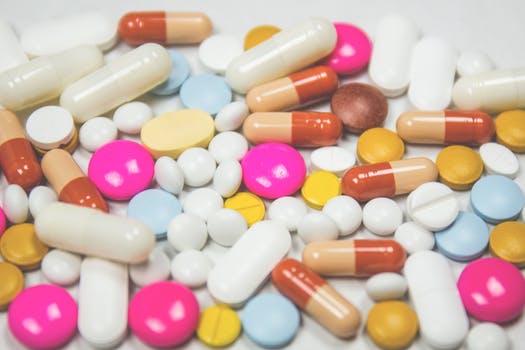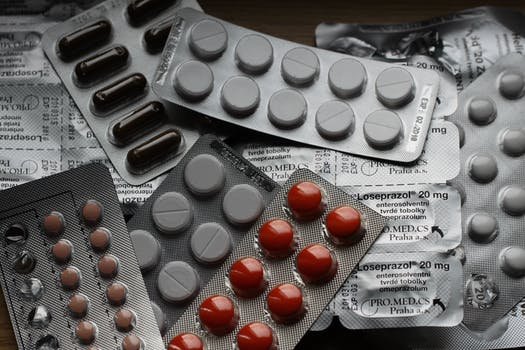DRUG INTERACTIONS........
Did you know the use of drugs with other drugs can either reduce or increase the effect of the drug used in the body? Have you ever wondered why some drugs cannot be taken with milk? Have you ever wondered why your doctors ask you if you are using a particular drug before prescribing drugs to you?
Before I go further, first let me state the definition of a drug.
WHAT IS A DRUG?
A drug is any substance which when taken causes a temporary physiological change in the body i.e alters the functioning of the body. A drug can be administered through several ways. It could be injected, swallowed, inhaled, smoked, through a patch(e.g nicotine patch) or placed/dissolved under the tongue. A drug can be used to treat or prevent an illness or relieve a symptom. Now that I've defined what a drug is, let me now define drug interaction.
WHAT IS DRUG INTERACTION?
Drug interaction is an interaction between a drug and other substances usually another drug or even a certain type of food which prevents the drug from its intended therapeutic benefits. An interaction can either increase(in which case the effect is referred to as being 'synergistic') or decrease(the effect is referred to as being 'antagonistic') the effectiveness of the drug or its side effects. Infact, an interaction can create a new side effect not previously seen or known with the drug. It is worth mentioning that there are three types of drug interaction namely:
1.Drug to Drug interactions
2.Drug to food interactions
3.Drug to herb interactions
WHO IS AT RISK OR MORE PREDISPOSED TO INTERACTIONS OF DRUGS?
√ People who are taking multiple medications for extended periods of time.
√ Patients with renal or hepatic impairments: People who have renal or hepatic impairments are prone to drug interactions because the rate at which drug is excreted or metabolized from their body is reduced. Their kidney or liver cannot function optimally.
√ It is largely unpredictable to determine who will experience an interaction because there are a lot of factors that affect the liveliness that drugs interact. Such factors include lifestyle, diet, age, underlying disease e.t.c
DRUG-DRUG INTERACTIONS
A change in a drug’s effect on the body when the drug is taken together with a second drug. A drug-drug interaction can delay, decrease, or enhance absorption of either drug. This can decrease or increase the action of either or both drugs or cause adverse effects.
Today, I will be examining the adverse effect of drug interactions.
It is worthy of note that I won't be able to touch everything but the basic things I'm trying to do is to expose you to some possible risks that can be attributed to drug interactions.
Always ask your pharmacist for potential drug interactions before you combine any drug.
∆ SILDENAFIL(commonly sold under the brand name 'Viagra'): Sildenafil is one of the most common manpower drugs. It should not be used with any nitrate drug such as nitroglycerin. Nitrates are medications used for treating or preventing heart pain( angina, chest pain) caused by a heart disease. Patients taking organic nitrate or any type of nitrate should not take sildenafil because of the risk of low blood pressure (hypotension).
On no condition should you combine sildenafil with any antihypertensive drug because of the risk of hypotension. Also, Care should be exercised by people who are also taking protease inhibitors( class of antiviral drugs) for the treatment of HIV infection.
∆ ANTIMALARIAL AND BLOOD TONIC: Most blood tonic contains iron, vitamin A, Vitamin B and other supplements. The malarial parasite, however, thrives in the presence of iron. Antimalarial activity of ACT( the common artemether-lumefantrine therapy) is reduced drastically when iron-containing blood tonic and multivitamins are administered with the antimalarial. Therefore, do not use antimalarial medication with blood tonic or multivitamin. It is advisable to use the blood tonic after the antimalarial drug treatment.
∆ PARACETAMOL AND ALCOHOL: Using paracetamol and alcohol together can increase the serum level of paracetamol and can lead to severe damage to the liver if continued over time. The belief about the hepatotoxicity of paracetamol in people who drink alcohol regularly is shared by the USA Food and Drug Administration (FDA). And under no condition should you take alcohol with any drug.
∆ THEOPHYLLINE AND CIPROFLOXACIN: Theophylline is a drug used for the treatment of asthma and other respiratory diseases. Ciprofloxacin, on the other hand, is an antibiotic used to treat a number of bacterial infections. Concurrent administration of the two drugs may lead to toxic increases in theophylline leading to theophylline toxicity. The problem occurs because the hepatic metabolism of theophylline is inhibited by ciprofloxacin via the cytochrome P-450 enzyme system. The meaning of all this is that the amount of theophylline in the blood will be increased which can lead to theophylline toxicity. Theophylline toxicity can be fatal and can lead to death.
∆ CIPROFLOXACIN AND MINERAL SUPPLEMENTS: As I said earlier, Ciprofloxacin is an antibiotic. It penetrates many hard to reach tissues in the body and kills a wide variety of bacteria. It is sold under brand names such as Cipro, Ciloxan e.t.c. Mineral supplements are known to interfere with the absorption ciprofloxacin. Products that containing aluminum, calcium, magnesium, iron and other minerals may interfere with the absorption of ciprofloxacin in the bloodstream and reduce its effectiveness. If possible, avoid taking mineral supplements when being treated with ciprofloxacin in order for you to derive maximum benefits from the Ciprofloxacin.
∆ CALCIUM CONTAINING SUPPLEMENTS AND TETRACYCLINE: Tetracycline is an antibiotic used to treat infections. In the stomach, calcium can bind with tetracycline and reduce the amount of tetracycline that can be absorbed. This can reduce the effectiveness of tetracyclines.
To avoid this interaction, take calcium two hours before or four to six hours after taking tetracycline.
∆ POSTINOR 2 AND ITS INTERACTION WITH OTHER DRUGS: Postinor 2 tablet is an emergency contraceptive preparation that can prevent pregnancy if it is taken within 72 hours of unprotected sex. Using postinor 2 with other drugs like ampicillin, rifampicin, chloramphenicol, neomycin, sulphonamides, tetracyclines, barbiturates and phenylbutazone may reduce the contraceptive effect.
The list is endless but always ask your pharmacist before you combine any drug, if there is risk of interaction.
Next time, I will be talking about Drug-Herb interactions. Thank You....
REFERENCES
RxHealthinfo
ncbi
Emedicinehealth
NINIHORLAH (Knower Of Nothing)




Congratulations! This post has been upvoted from the communal account, @minnowsupport, by ninihorlah from the Minnow Support Project. It's a witness project run by aggroed, ausbitbank, teamsteem, theprophet0, someguy123, neoxian, followbtcnews, and netuoso. The goal is to help Steemit grow by supporting Minnows. Please find us at the Peace, Abundance, and Liberty Network (PALnet) Discord Channel. It's a completely public and open space to all members of the Steemit community who voluntarily choose to be there.
If you would like to delegate to the Minnow Support Project you can do so by clicking on the following links: 50SP, 100SP, 250SP, 500SP, 1000SP, 5000SP.
Be sure to leave at least 50SP undelegated on your account.
Your post have been Upvoted by @BacktoSchool Community
We are a Community aimed at helping Students on the Steem blockchain Pay their school fees from Steemit platform.
You can join us Using the following links.
Backtoschool Community Group
know more about @backtoschool HERE
Curator on duty @acheever